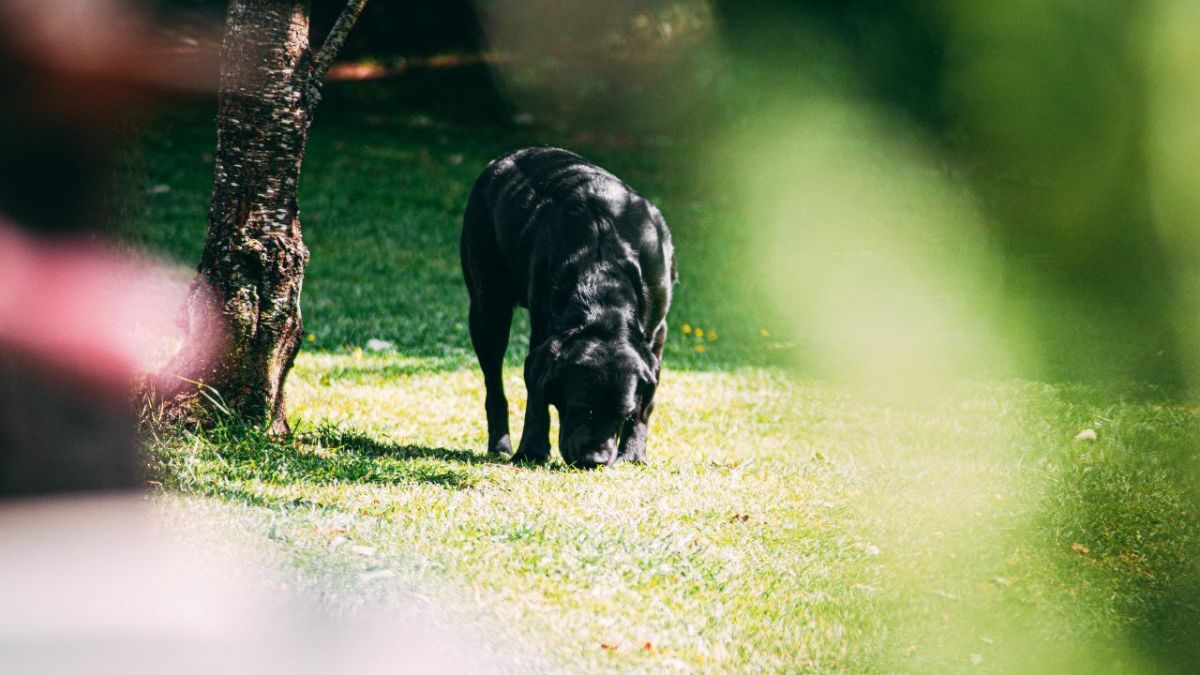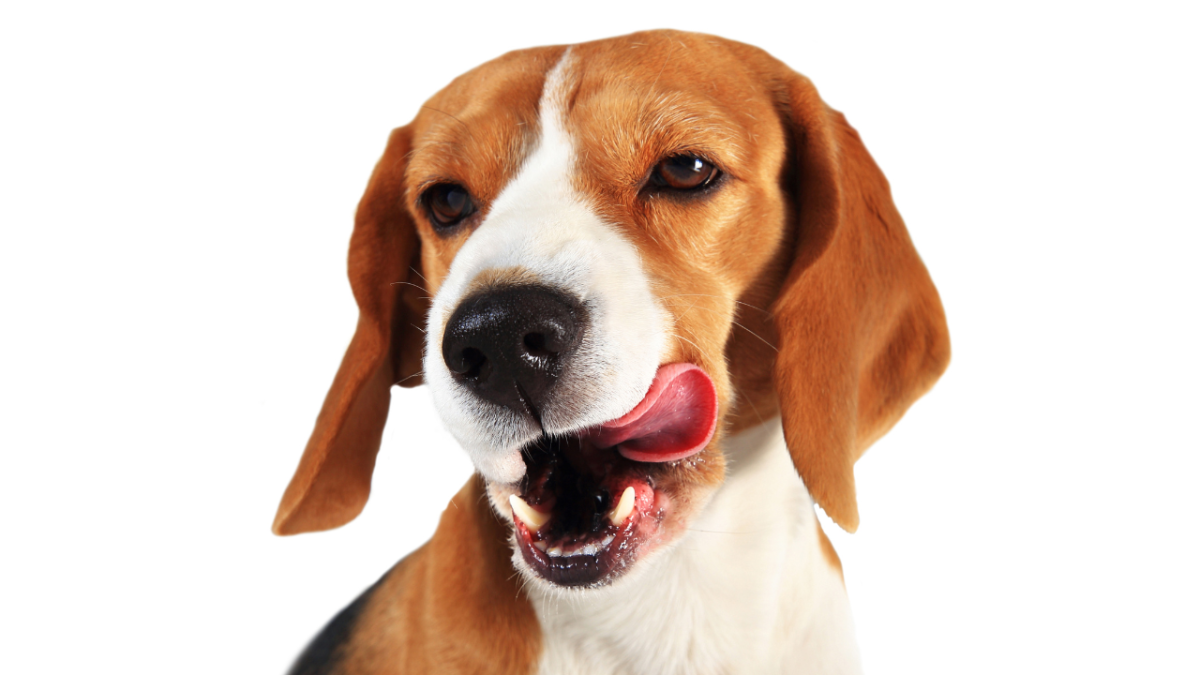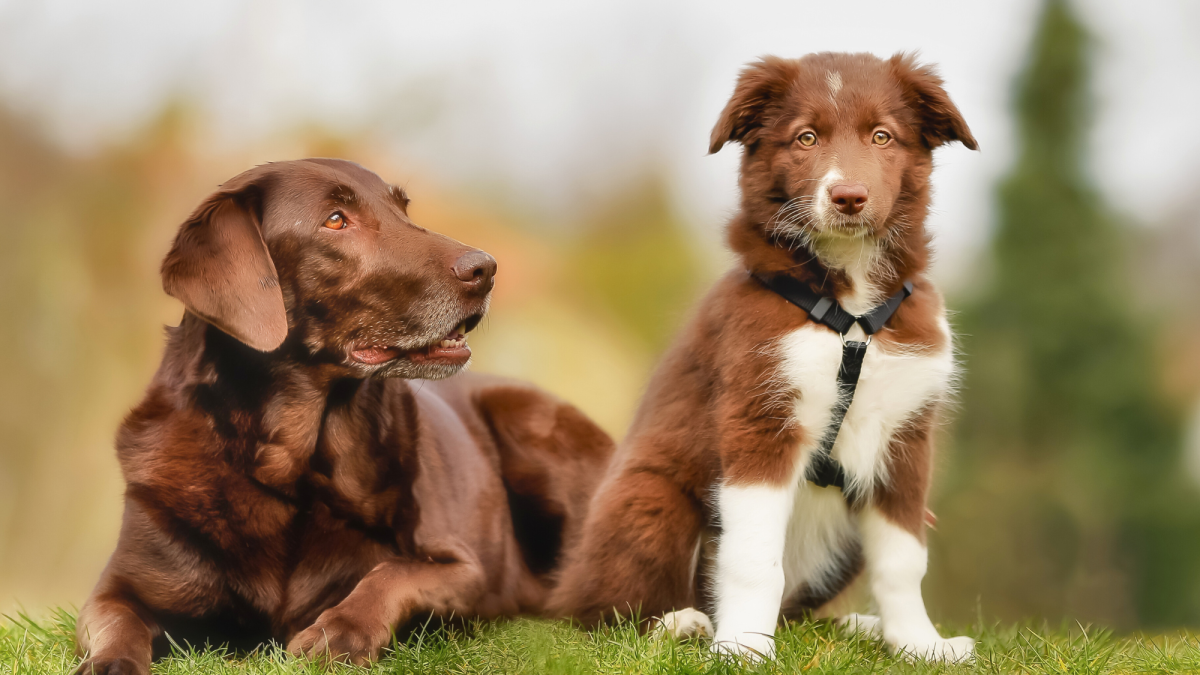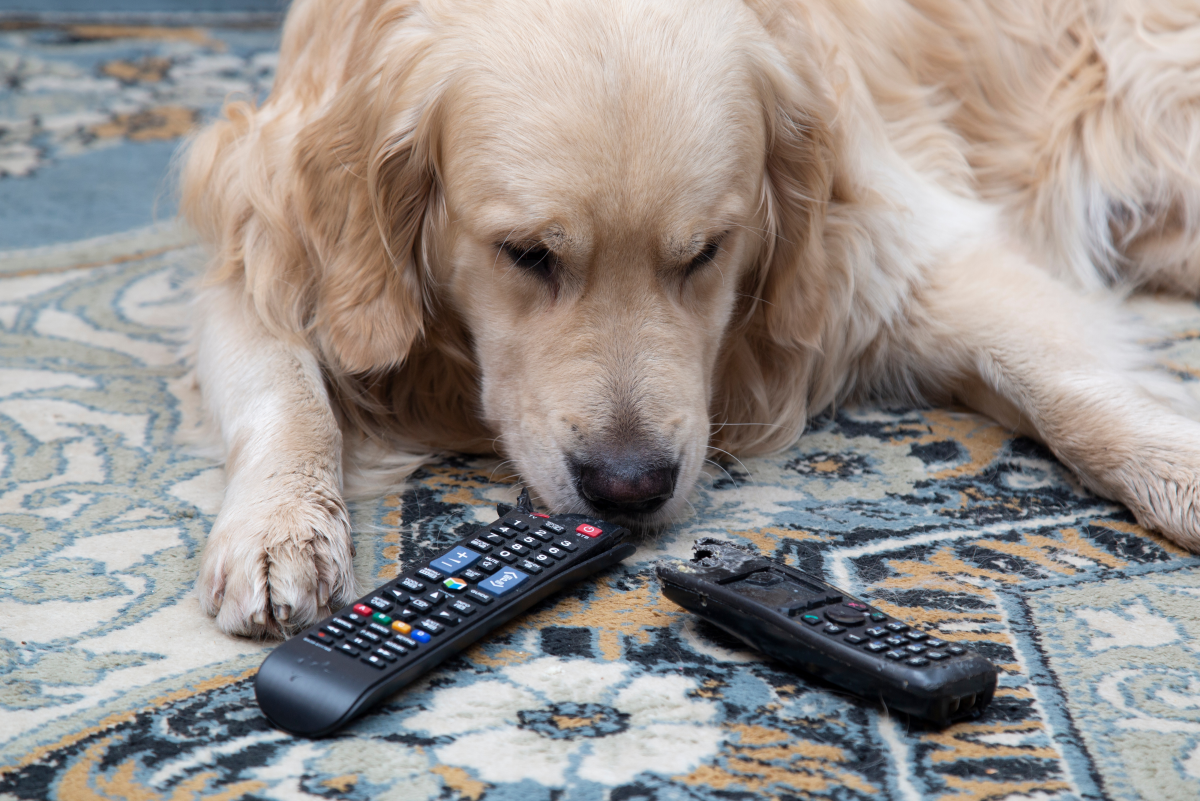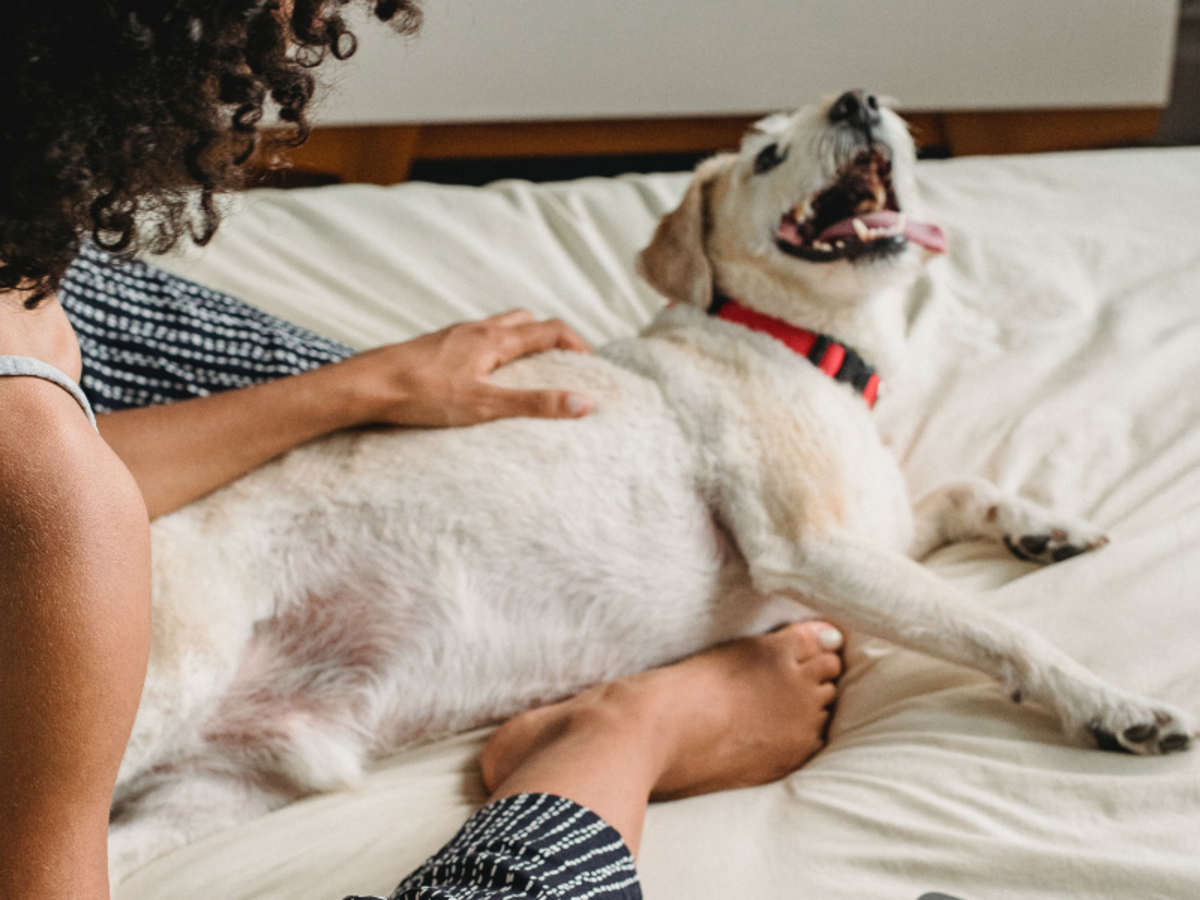Dog Behavior: Eating Poop and Why it Matters
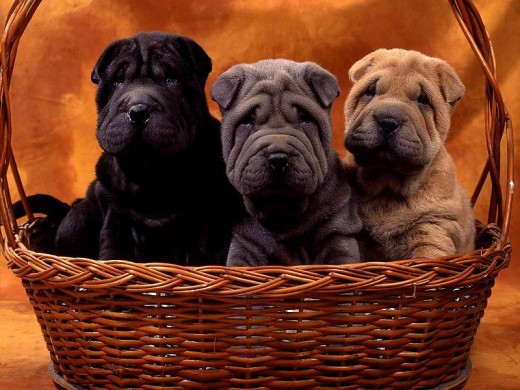
A Poop Eating Puppy
Did you know that rabbits must eat their poop to gain optimal nutrition from their partially digested food? If they cannot do this, they will become sick. While this is not true for dogs, they will still sometimes enjoy a fecal treat nonetheless, either their own or one left by another animal. This may cause a family with a puppy to eye the adorable little being with disgust. After all, Fuzzhead just ate feces and enjoyed it. They may gag as Fuzzhead licks his or her lips. Talk about an end, at least for the moment, to doggy kisses!
But why do puppies and even much older dogs do this?
For Puppies, It’s Learned Behavior
Poop eating, which is technically known as coprophagy, is a normal behavior in puppies. In fact, it’s often a habit they pick up from their very first role model: their mother. As strange as it may seem, as her newborns create stool, a mother dog will quickly consume it. But the reason she does this is a good one. In the wild, all animals are particularly vulnerable right after they give birth. And newborn pups are also all but helpless to predators. The mother dog does what she can to protect both herself and her offspring by removing all feces, as its scent can otherwise attract carnivorous animals.
While there are typically no mountain lions in people’s homes, instinct still takes over and encourages this behavior. It may also be promoted if whoever is taking care of a new mother and her litter aren’t doing the best job of cleaning up after them. In this instance, removing poop that’s left in her enclosure also creates a cleaner environment for her growing family.
And, as puppies do, they learn from their mother. They watch every move she makes and try to act in ways that are similar. So, when they see her eating poop, they also begin poop eating behavior. While the mother will typically stop once her pups are around three weeks old, the puppies may continue to eat their own or their siblings’ feces. Beyond following their mother’s lead, they may also simply be curious about how it looks and tastes. The best way for this not to become a lingering habit is for poop to be removed regularly on a daily basis.
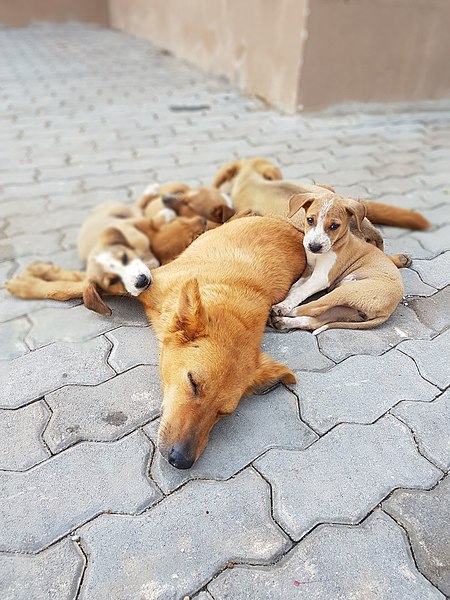
Digestive Problems or Diseases in Puppies and Older Dogs
Puppies
By nine months most puppies will simply grow out of the practice of poop eating. When they don’t, this may indicate a problem. For example, they may be having trouble digesting the food they are consuming. If food hasn’t been broken down, it is quite similar to how it was before it was eaten even after it’s pooped out. As unbelievable as it may seem, it also tastes quite like the original food. In other words, why wouldn't they eat it, as it tastes just like kibbles?
This inability to break down what they eat happens for one of two reasons. The first is that you are feeding your puppy a low-quality food without easily digestible ingredients. The second is that your puppy has digestive issues. If you are giving your dog a recommended diet that’s easy on the gastrointestinal tract, it may be time to take your pet to a veterinarian for a diagnosis.
Older Dogs
But what if you're worried about your poop eating adult? In the case of older dogs, sudden changes in behavior are key. If your dog has never eaten feces before and is now suddenly wolfing it down like a favorite treat, this may be due to an underlying medical condition. Keep an eye out for further symptoms. Is your dog unusually tired, in pain, vomiting, losing weight, or producing watery stools? Diseases of the intestines, liver, or other organs could cause these in addition to poop eating.
If a veterinarian clears your dog for these potential health problems, consider doing the same as you would for your puppy and change to a better diet under your veterinarian’s supervision. Also, consider the additional reasons detailed below for why your pet could be eating stool if it turns out not to be a dietary issue.
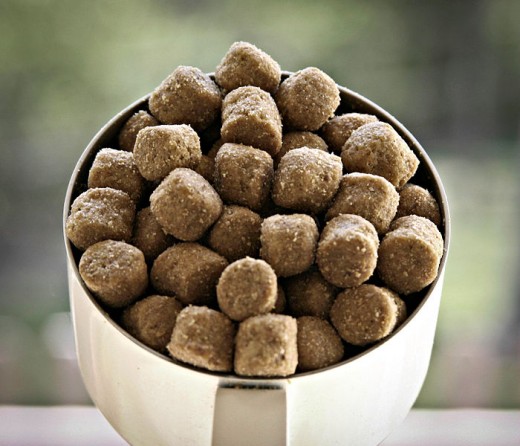
Hormones
For some reason, female dogs are more likely to ingest feces than males. Further, males who have not been fixed are the least likely of all to do this. These facts suggest that gender or hormones may, in some way, impact the behavior of dogs and influence what they will or will not eat.
Hunger
Dogs that eat poop could also be hungry. It is possible owners aren’t feeding them enough, as puppies need many calories to grow and very active adults burn lots of energy. Or, dogs may be fed plenty but aren’t getting all of the nutrients from their food because of worms or parasites stealing these from them. A veterinarian can either rule out or confirm a parasite and, if present, will recommend the best form of treatment.
There are also conditions that increase appetite, such as diabetes or thyroid disease. These should also be tested for if your dog can’t seem to feel satisfied no matter how much he or she eats.
Hunger, in general, is closely tied to coprophagy. Behaviorist Steven R. Lindsay believes that the practice of eating feces is one that evolved over time to fight starvation among the ancestors of our domesticated pets. It prevents packs from dying from lack of food out in the wild where they're not provided for by humans.
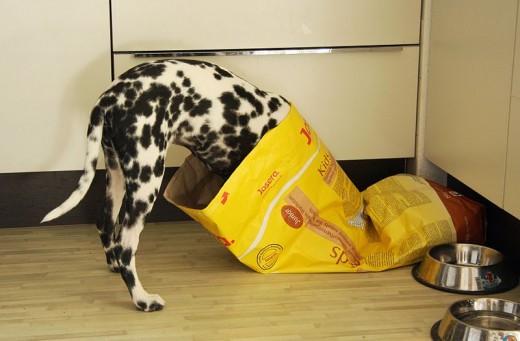
Boredom, Isolation, or Lack of Space
When we’re bored we may do some online reading. When your pet’s got extra time to kill it may do some rather unusual eating. That’s right, sometimes a dog will eat poop just because it’s something to do. In support of this theory, it is a much more common behavior among dogs that are housed separately by themselves than ones that are kept inside in close proximity to their human families. In the first instance, they may feel isolated and grow bored and restless.
Dogs kept in kennels may also practice coprophagy due to the cramped environment and lack of space. It is not uncommon for rescue dogs from overcrowded conditions to arrive at their adoptive home and eat feces.
Anxiety
The opposite may also be true. Sometimes, it is not because of boredom but because of sudden changes that dogs become stressed and start to eat poop. When a dog first becomes a part of a human family, it may feel anxiety until it becomes used to its new living environment. Moving or other big events could have similar effects. Punishing the dog for eating feces because of stress could backfire in this instance and make things considerably worse.
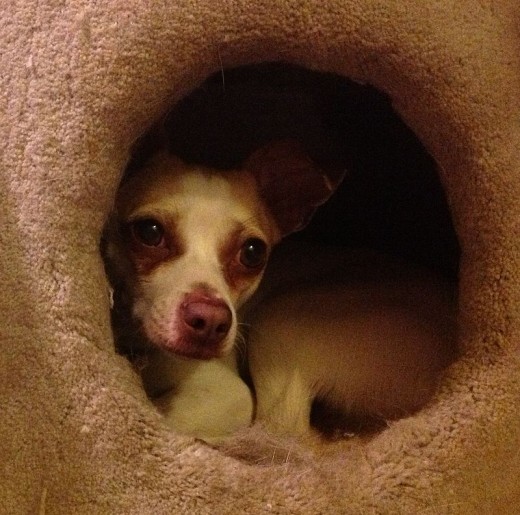
Attention Seeking or Avoiding
Of course, your dog may also be acting out just to get noticed. It’s hard to ignore your pet enjoying a meal of feces, and he or she may want to get a reaction from you, whether or not it is a good one. Have you been spending less time with your dog than usual? If so, you may want to address this.
Or, perhaps your dog doesn't want to make you upset but is instead trying to avoid upsetting you. If in the past, you were mad when your dog had an accident in the house, it may start eating evidence if it poops indoors to avoid your anger. Think back to how you reacted and see if it explains the way your pet is now acting.
Confusion
You should not feed your dog near where your dog goes poop. Some believe that dogs may become so used to smelling both at the same time that they can no longer differentiate one from the other.
It is Calming, Satisfying, or Tastes Good
Some dogs have none of the above issues. They eat their feces or the feces of other animals simply because they like doing it. This is particularly true, for some reason or another, in the case of cat, goose, or horse stool. As well as with cooled stools. In fact, while soft feces isn’t their favorite, canines consider frozen turds highly prized delicacies. Owners who have witnessed this phenomenon term them “poopsicles” as their pets eagerly devour them with relish. But, whatever the temperature it must be fresh. Dogs prefer dung made within the last 24 to 48 hours with few exceptions.
No matter how much your dog enjoys it, eating poop should be discouraged. If it’s your dog’s poop, it’s less potentially dangerous, but you should still pick it up before he or she has a chance to ingest it. However, this is often not the case. Only 15% of dogs eat their own feces while 85% exclusively eat the feces of others. This can be serious.
Foreign poop could expose your pet to toxins, parasites, or viruses. For this reason, it is especially important to try to keep an eye out for animal droppings on walks and distract your dog when you pass by them. Reward your dog for not eating them. A behaviorist may also be able to help with ways to train your pet, so this is no longer a problem.
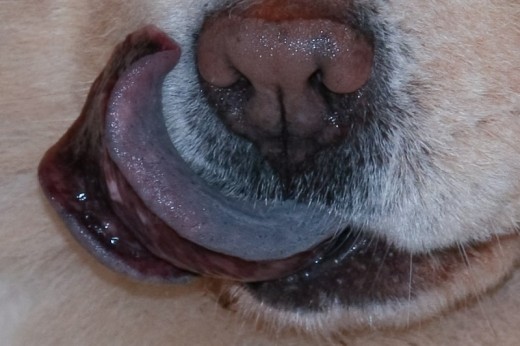
Scientifically More Common Then You’d Think
University of California, Davis researchers sent surveys to 3,000 dog owners. They were surprised at what they discovered: one in six dogs ate feces frequently, or five or more times as observed by their owners. One in four ate poop occasionally, or at least once. So, if your dog practices this behavior, you are not alone if that's at all comforting to know.
Sources
PetMD’s Why Do Dogs and Puppies Eat Poop?
AKC Staff’s Why Dogs Eat Poop and How to Stop It
This article is accurate and true to the best of the author’s knowledge. It is not meant to substitute for diagnosis, prognosis, treatment, prescription, or formal and individualized advice from a veterinary medical professional. Animals exhibiting signs and symptoms of distress should be seen by a veterinarian immediately.

